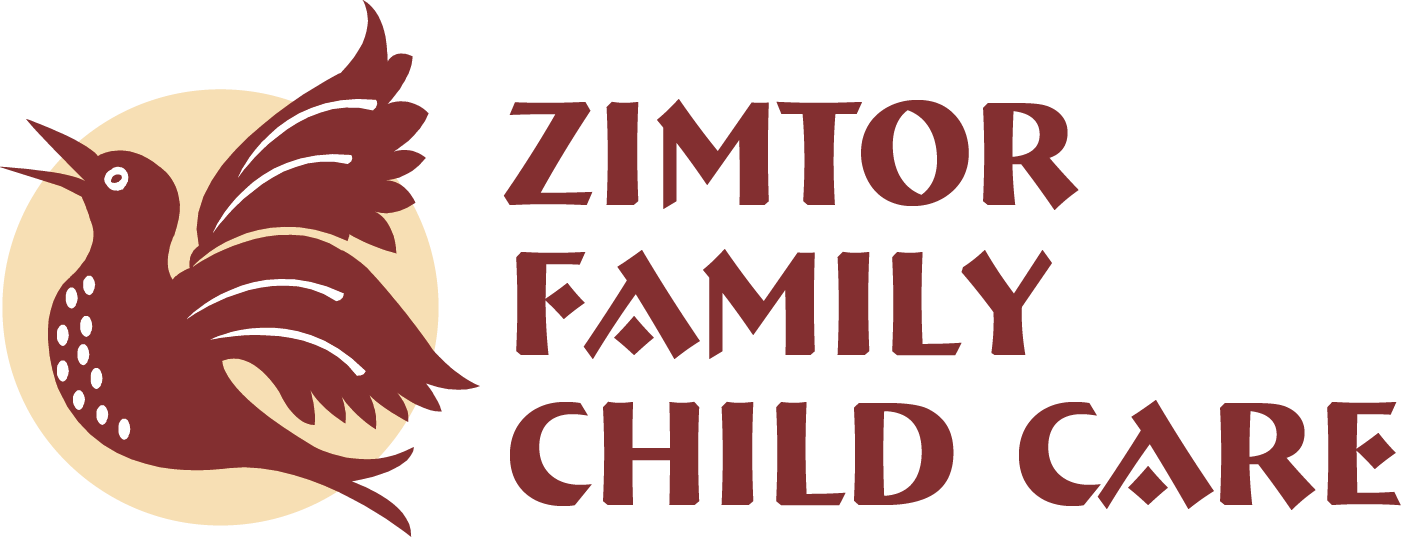Philosophy
I believe that children learn best when they take an active role in shaping their own education. Those activities that are intrinsically interesting and satisfying to a child are most likely those that best meet the child's needs. For this reason, I attempt to give children as many choices as possible. Infants eat and sleep on demand. Toddlers spend most of the day in free play. Preschoolers choose their own activities for much of the day, and are encouraged but not required to participate in group activities. The only cases in which I would generally limit children's choices are those where health and safety are involved or where the rights of others are likely to be violated.
Curriculum
For choices to be meaningful, children must have a wealth of activities to choose from. Each day at Zimtor, activities are offered in a wide range of areas as appropriate to the age of the children. Infants are read to, exposed to a variety of sensory materials, sung to, and even danced with. Toddlers are also read to, provided with a range of manipulative materials, offered art activities like finger painting and vegetable printing, and can take part in singing and movement activities. Preschoolers are offered more formal activities in language arts, mathematics, science, music, fine arts, dramatic expression, and movement. In addition, preschoolers are offered many multi-disciplinary activities. For example, preschoolers often have the opportunity to cook using a pictorial recipe, an activity that involves aspects of language arts, mathematics, and science.
Discovery and Creativity
I place great emphasis on discovery and creativity. Many of my classroom activities attempt to pose questions for children to answer or problems for children to solve through experimentation. Other activities simply provide materials for children to explore freely. In general, children in my classes may use materials in any way that is constructive and safe.
Cooperation
I believe that cooperation, rather than competition, brings out the best in each person. Children at Zimtor are encouraged to work together in every activity, and many classroom activities are designed to foster cooperation specifically. In particular, all sports and games at Zimtor attempt to involve every child in some collective goal.
Free Exchange of Ideas
I believe that the best and most engaging education involves exposure to a wide range of ideas. For this reason, I encourage a free exchange of ideas and embrace controversial topics. For example, a unit on comparative religion is a regular part of my preschool curriculum. Every idea is welcomed at Zimtor as long as it is expressed in a responsible way.
Consensus-Based Decision Making
Many decisions that directly affect the classroom are made by consensus of all the children in the class to the extent that their age allows them to participate. Children at Zimtor take part in developing curriculum, making classroom rules, and planning special events. I take part in these decisions too, of course, but my emphasis is on reaching decisions through a collaborative group process in which everyone is strongly involved. In my experience, young children adapt remarkably well to this way of making decisions.
Conflict Resolution
I believe that conflicts can be resolved most effectively by identifying problems clearly, generating solutions creatively, and choosing solutions cooperatively. I am committed to using this approach with both children and parents, and to teaching children how to use this approach to solve their own problems as well. Of course, infants and toddlers are limited in their ability to engage in conflict resolution, but I try to respect their wishes as well as I can in resolving problems. My goal is always to find a solution that works best for everyone.
Fairness
I make every attempt to treat students as individuals, regardless of any group identity. I expect the same high standards of behavior and achievement of all children. Children who have difficulty meeting these standards are provided extra help until they have fully mastered them.
Community Saturdays
Several times a year, Zimtor hosts a Community Saturday. All family members of children enrolled at Zimtor are invited to a morning of planned activities followed by a potluck lunch. Community Saturdays are optional, but they are a great way for the families of children at Zimtor to get to know one another and build an extended community.


